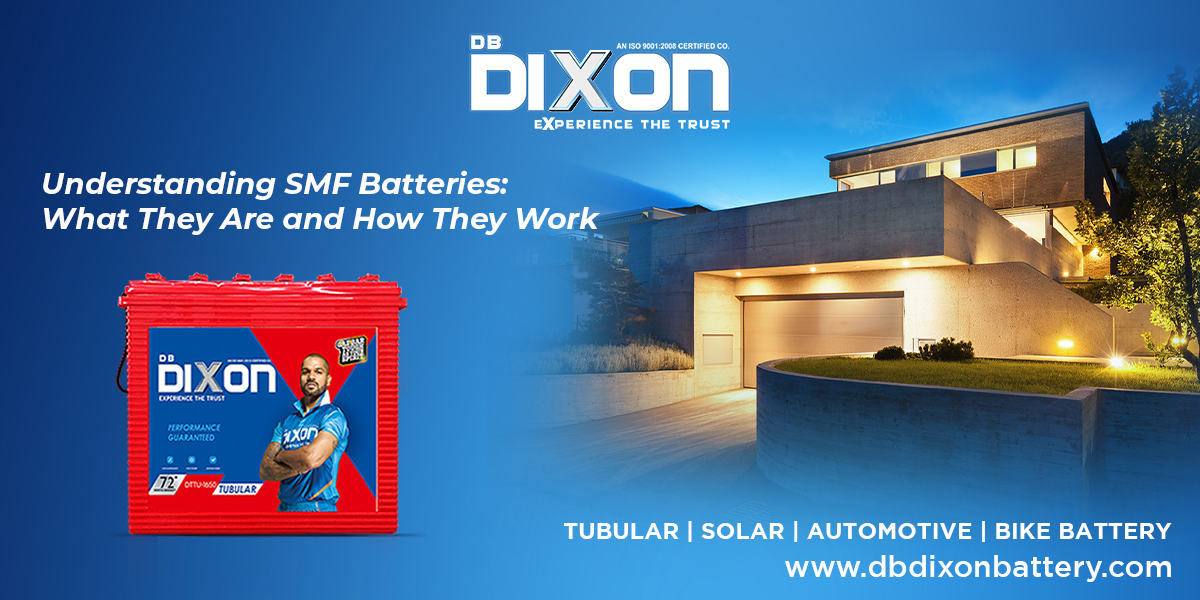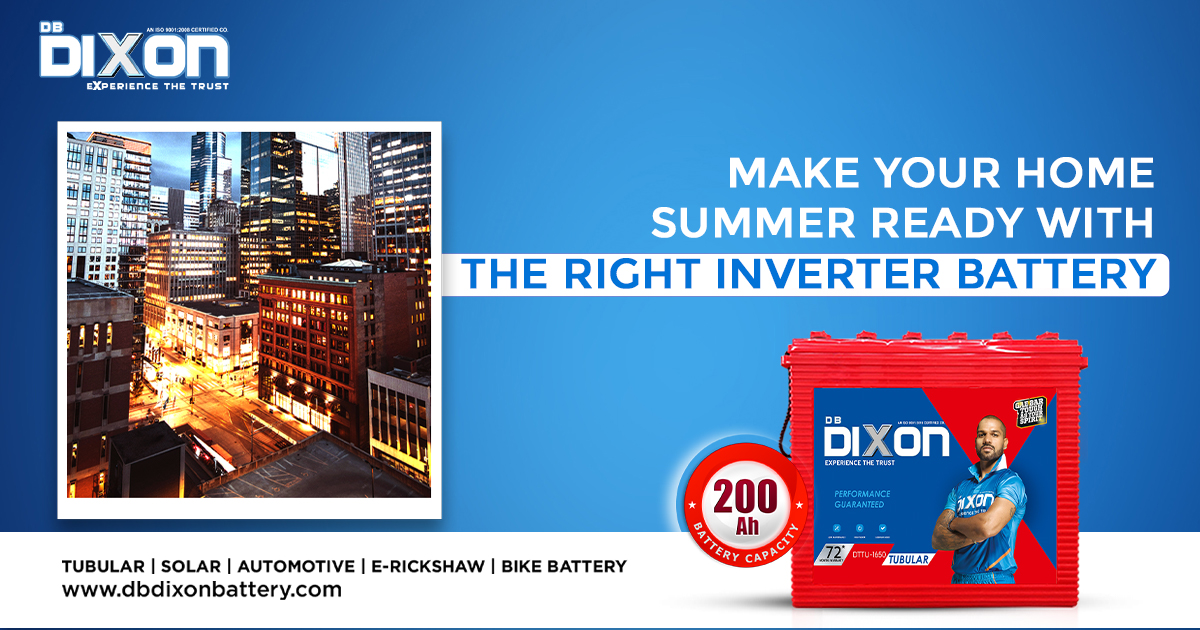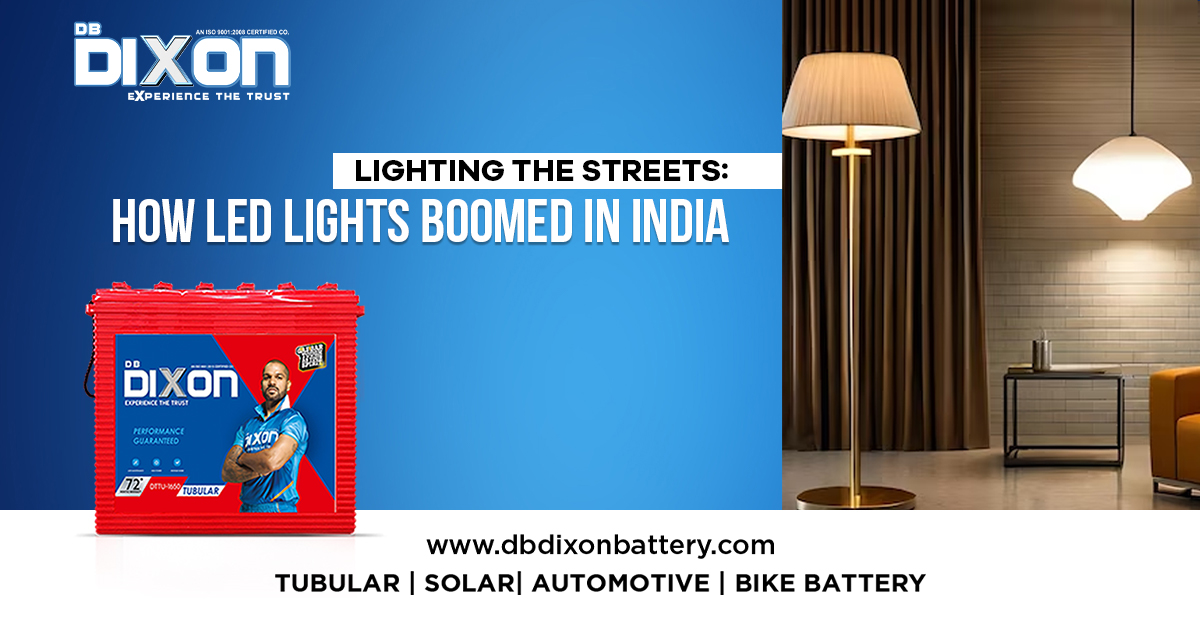Inverter batteries are the heart of any backup power system. Without a reliable battery, even the most advanced inverter won’t perform effectively. As one of the leading Inverter Battery Manufacturers, DB Dixon is committed to providing long-lasting, durable batteries that offer uninterrupted power supply. However, like any other power source, inverter batteries do have a finite lifespan. Knowing when to replace your inverter battery is crucial to ensure that your power backup system remains effective.
Here are the key signs that indicate it might be time to replace your inverter battery:
1. Reduced Backup Time
The most obvious sign that your inverter battery needs replacement is when the backup time decreases significantly. When your battery is new, it stores sufficient charge to power your appliances for the expected duration. However, as the battery ages, its ability to hold a charge diminishes. If you notice that your battery is not delivering the same backup as it once did, it’s a clear indicator that its capacity has reduced, and a replacement may be necessary.
2. Frequent Low Battery Warnings
Inverter systems are equipped with indicators that notify users when the battery charge is low. If you notice frequent low battery warnings even though your usage has not changed, this could be a sign of declining battery health. An aging battery may not be able to charge fully, leading to frequent warnings and a shorter duration of use.
3. Excessive Heating
One of the more dangerous signs of an inverter battery nearing the end of its life is excessive heating. When an inverter battery is in good condition, it operates within a safe temperature range. However, over time, batteries can become inefficient and produce more heat during charging and discharging. If you notice your battery or inverter system becoming unusually hot, it’s time to consult with a professional. Continuing to use an overheated battery can be hazardous and may result in damage to the inverter or even pose a safety risk.
4. Corrosion or Leakage Around Battery Terminals
Another sign that your inverter battery needs replacement is visible corrosion or leakage around the battery terminals. Over time, the electrolyte in the battery can cause corrosion, which can interrupt the flow of electricity between the battery and the inverter. If you notice a white or greenish deposit on the terminals, or any liquid leaking from the battery, it’s an indicator of aging or damage. Cleaning the terminals might help temporarily, but if corrosion or leakage persists, replacing the battery is a safer option.
5. Unusual Noises from the Inverter
Inverter systems are generally quiet when functioning properly. However, if you begin to hear unusual sounds like beeping, clicking, or humming from your inverter, it could be a sign that your battery is struggling to operate. This is especially true if the noise occurs frequently or continuously. The inverter may be working harder to compensate for the failing battery, indicating it’s time for a replacement.
6. Battery Not Charging Properly
If your inverter battery isn’t charging fully or takes an abnormally long time to charge, it’s a sign that the battery cells have deteriorated. The ability of a battery to charge quickly and hold that charge is a key factor in its performance. If the charging process is taking longer than usual or the battery fails to reach full capacity, it may have reached the end of its life cycle.
7. Age of the Battery
Even the best-quality inverter batteries have a limited lifespan. Typically, an inverter battery can last anywhere from 3 to 5 years, depending on the usage and maintenance. If your battery has crossed this period, you should consider replacing it even if it hasn’t shown major signs of deterioration yet. Regular maintenance can prolong battery life, but once it reaches a certain age, replacement is inevitable.
8. Frequent Power Failures Despite a Charged Battery
If your inverter system frequently fails to provide power even when the battery is fully charged, it’s a sign that something is wrong. This could indicate that the battery is unable to deliver the stored power effectively. Issues could arise from internal damage or degradation of the battery cells, rendering it incapable of providing the necessary power output. In such cases, it’s essential to evaluate the battery’s performance and consider replacing it to ensure reliability during power outages.
Conclusion
Recognizing the signs that your inverter battery needs replacement can save you from unexpected power outages and ensure that your home or business remains powered during critical moments. Regularly monitor your battery’s performance and heed any indicators of decline. By choosing a quality inverter battery like those offered by DB Dixon, you can enjoy peace of mind knowing you have a dependable backup power solution. If you suspect your inverter battery is nearing the end of its lifespan, consult with a professional to assess the situation and explore replacement options. Prioritize your power needs today to secure uninterrupted service for tomorrow.









